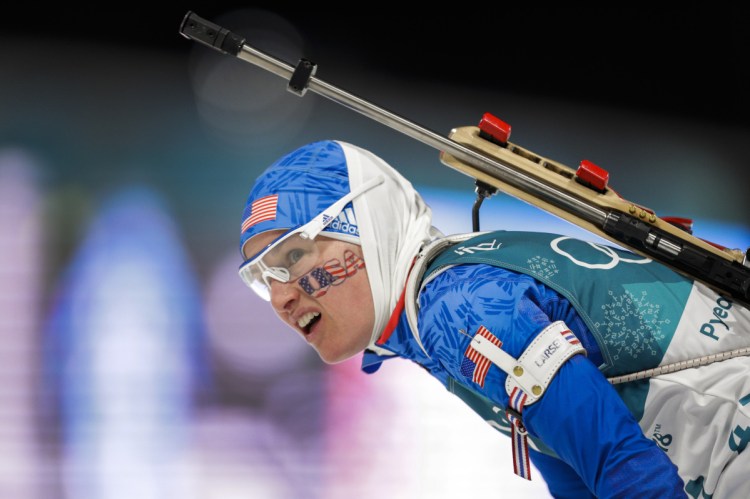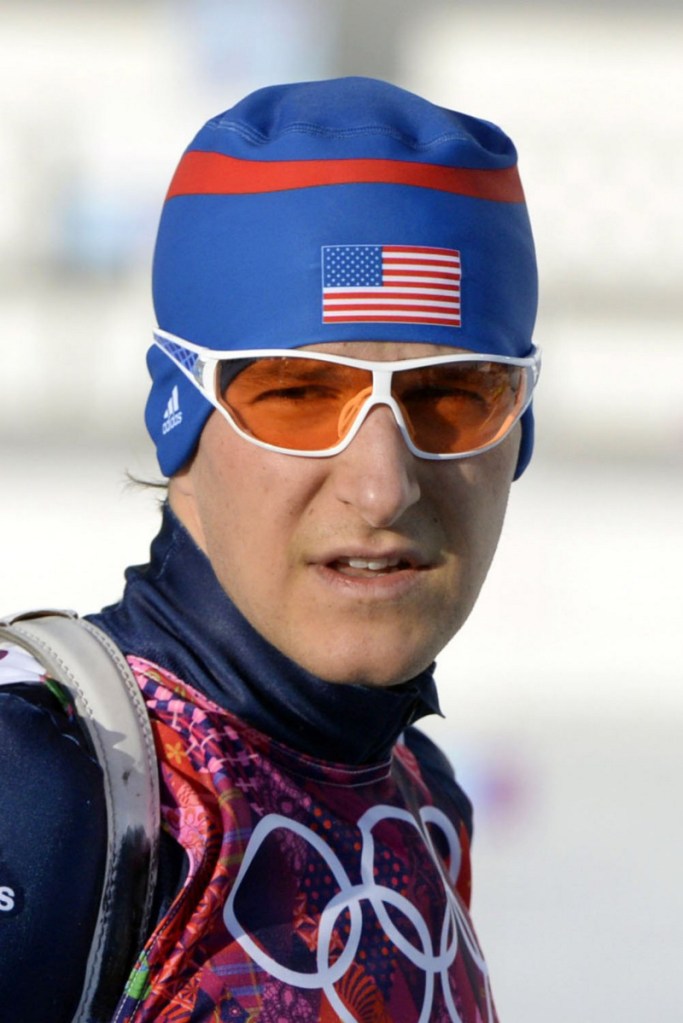Two weeks of men’s Olympic competition kicked off Sunday at the Alpensia Biathlon Centre at the PyeongChang Games with a 10-kilometer sprint that did not include Maine’s Russell Currier.
A 30-year-old native of Stockholm, Currier is one of five men on a U.S. team allowed four starting berths. Those went to Lowell Bailey and Tim Burke of New York, Sean Doherty of Center Conway, New Hampshire and Leif Nordgren of Minnesota.
In cold and windy conditions, three of the four U.S. men placed among the top 60 to qualify for Monday’s pursuit competition. Bailey hit nine of 10 targets and placed 33rd. Burke hit six and placed 47th. Nordgren hit eight and finished 58th. Doherty missed four of five shots in prone before knocking down all five targets in standing and wound up 65th in the field of 87.
Arnd Pfeiffer of Germany was the surprise gold medalist, with perfect shooting and a time of 23 minutes, 38.8 seconds. Michal Krcmar of the Czech Republic also hit all 10 targets to win silver, 4.4 seconds behind Pfeiffer. Italian Dominik Windisch earned bronze with one penalty, 7.7 seconds back.
Pre-race favorites Martin Fourcade of France and Johannes Thingnes Boe both missed three shots in their first shooting stage. Fourcade recovered enough to clean in standing and climbed to eighth. Boe missed another in standing and dropped to 31st.
All five U.S. men are holdovers from the Sochi Games of 2014, when Currier placed 61st in sprint and 50th in individual and skied on the men’s relay team that placed 16th.
The sprint competition includes two shooting stages, one prone and one standing, with penalty loops of 150 meters for each missed shot of 10. The top 60 finishers qualify for Monday’s 12.5k pursuit, and start in their respective order of finish.
Currier and Nordgren were the final two selections to the U.S. team, announced in late January.
Currier’s next opportunity to race will be in the Feb. 15 20k individual race. Bailey is the reigning world champion in that event, which includes four shooting stages and one-minute penalties instead of additional loops.
Click here for our complete coverage of the PyeongChang Games.
Send questions/comments to the editors.



